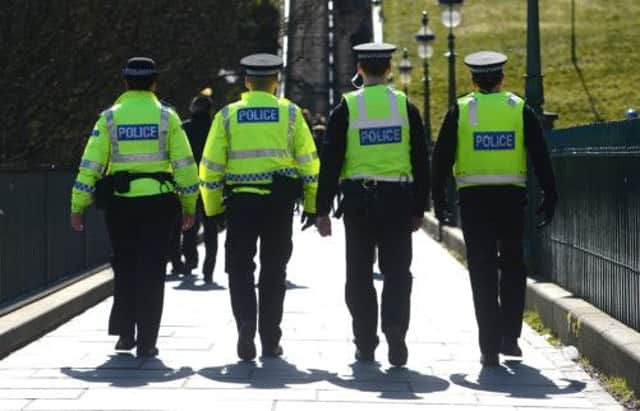Police handling of complaints placed in the dock


In a potentially landmark verdict, judges backed an appeal by Kevin Ruddy, who brought a £10,000 civil action against the office of the Chief Constable of Strathclyde Police and the Lord Advocate.
Mr Ruddy, 33, claims the force breached article three of the European Convention on Human Rights (ECHR), which prohibits torture and inhumane or degrading treatment or punishment.
Advertisement
Hide AdAdvertisement
Hide AdHe was arrested on 5 September 2004 and taken to Perth police station. The next day, two officers from Strathclyde arrived to take him to a Glasgow police station by car. He alleges he was abused en route.
The second part of Mr Ruddy’s case is that both Strathclyde Police – one of eight forces which in April merged into Police Scotland – and the Lord Advocate failed to effectively investigate his complaint.
The Court of Session agreed that the investigation should not have been carried out by an inspector at the former Strathclyde force.
In its ruling issued yesterday, the court said: “In these circumstances, we conclude that the sheriff and the sheriff principal were in error in dismissing as irrelevant the pursuer’s averments that the investigation by Inspector Darroch lacked
the requisite structural independence required by the convention.
“It was clearly averred that the inspector was a member of Strathclyde Police and therefore a member of the same police force, subject to the directions of the first defender, the chief constable, as were all officers under his command.”
The case has now been referred back to the sheriff court, which will decide on Mr Ruddy’s assault claim and whether he is entitled to damages.
However, his solicitor Tony Kelly, a human rights lawyer, said that after a nine-year fight the verdict represented a significant victory.
Advertisement
Hide AdAdvertisement
Hide Ad“This has been a long, drawn-out, hard-fought victory to bring home the importance of what has long been said by the court in Strasbourg: police complaints ought to have the confidence of those who have the misfortune to make them.
“We have much to learn from the common-sense pronouncements from Europe on the insistence of an independent, impartial and accountable system of investigating misconduct.”
It is not yet clear what impact the new ruling will have on policing.
The case dates back to before the creation of Police Scotland, and the Police Investigations and Review Commissioner, which was set up to scrutinise it.
Police Scotland, the Scottish Police Authority and the Scottish Government all insisted that the current set-up for investigating complaints against police is ECHR-compliant.
Deputy Chief Constable Neil Richardson said: “We note the decision today and we are confident that the structures and processes around complaints about the police, introduced as a result of police reform, are robust and do not require to be reviewed.
“Human rights compliance is at the heart of the delivery of our service.”